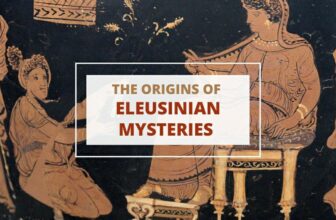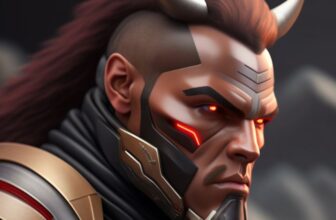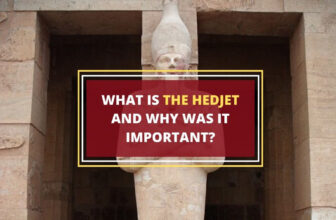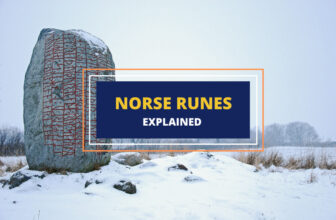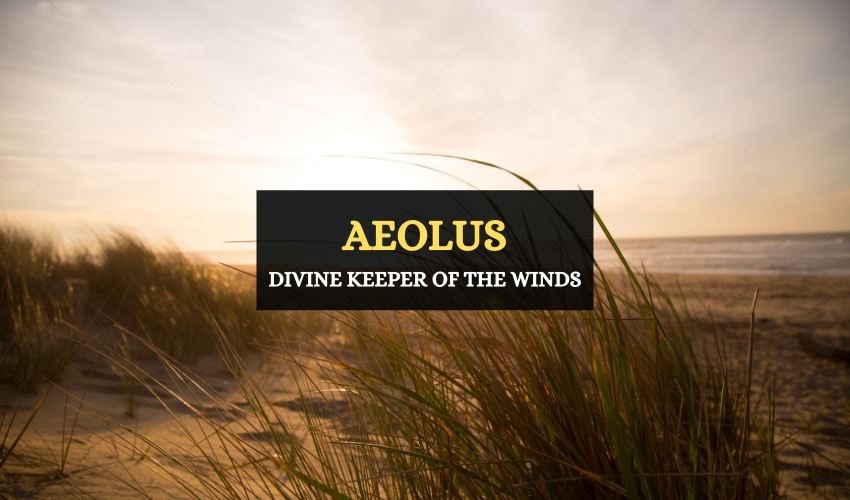
Table of Contents
In Greek mythology, “Aeolus” is a name given to three characters who are genealogically related. Their accounts are also so similar that ancient mythographers ended up mixing them up.
Three Mythical Aeoluses
The three different Aeoluses of Greek mythology appear to have some genealogical connection, but their exact relationship to each other is quite confused. Of all the classifications of the three Aeoluses, the following is the simplest:
Aeolus, Son of Hellen and Eponymous
This Aeolus was said to be the father of the Greek nation’s Aeolic branch. Brother to Dorus and Xuthus, Aeolus found a wife in Deimachus’ daughter, Enarete, and together they had seven sons and five daughters. It is from these children that the Aeolic race was formed.
The most prominent myth of this first Aeolus, as recounted by Hyginus and Ovid, is one that revolves around two of his children – Macareus and Canace. According to the myth, the two committed incest, an act that gave rise to a child. Besieged by guilt, Macareus took his own life. Afterward, Aeolus threw the child to the dogs and sent Canace a sword to kill herself with.
Aeolus, Son of Hippotes
This second Aeolus was the great-grandson of the first. He was born to Melanippe and Hippotes, who was born to Mimas, one of the first Aeolus’s sons. He is mentioned as the Keeper of the Winds and appears in The Odyssey.
Aeolus, Son of Poseidon
The third Aeolus is credited with being the son of Poseidon and Arne, a daughter of the second Aeolus. His lineage is the most misconstrued of the three. This is because his story involved his mother being cast out, and the outcome of this departure became two conflicting stories.
First Version
In one of the accounts, Arne informed her father of her pregnancy, which Poseidon was responsible for. Displeased by this news, Aeolus II blinded Arne and discarded the twins she bore, Boeotus and Aeotus, in the wilderness. By good luck, the babies were found by a cow that fed them milk until they were found by shepherds, who in turn took care of them.
By chance, around the same time, queen Theano of Icaria had been threatened with exile for failing to bear the king children. To save herself from this fate, the queen sent her servants out to find her a baby, and they chanced upon the twin boys. Theano presented them to the king, pretending they were her own children.
Considering he had waited a long time to have children, the king was so happy that he did not question the authenticity of Theano’s claim. Instead, he received the boys and raised them happily.
Years later, queen Theano had her own natural children, but they never got preference with the king as he had already bonded with the twins. When all the children were grown, the queen, guided by jealousy and worry about the inheritance of the kingdom, conceived a plan with her natural children to kill Boeotus and Aeotus while all of them were out hunting. At this point, Poseidon intervened and saved Boeotus and Aeolus, who, in turn, ended up killing Theano’s children. The news of her children’s death drove Theano to madness and she killed herself.
Poseidon then told Boeotus and Aeotus of their paternity and their mother’s captivity at the hands of their grandfather. On learning this, the twins went on a mission to set their mother free and ended up killing their grandfather. With the mission a success, Poseidon restored Arne’s eyesight and took the whole family to a man named Metapontus, who eventually married Arne and adopted the twins.
Second Version
In the second account, when Arne disclosed her pregnancy, her father gave her away to a Metapontumian man who took her in and later adopted her two sons, Boeotus and Aeolus. Years later, when the two sons had grown up, they forcefully took over the sovereignty of Metapontum. They ruled the city together until a dispute between Arne, their mother, and Autolyte, their foster mother, caused them to murder the latter and run away with the former.
At some point, the three parted ways, with Boetus and Arne heading to southern Thessaly, also known as Aeolia, and Aeolus settling on some islands in the Tyrrhenian Sea that were later named “The Aeolian Islands”.
On these islands, Aeolus became friendly with the natives, and became their king. He was proclaimed to be just and pious. He taught his subjects how to navigate while sailing and also used fire reading to foretell the nature of rising winds. This unique gift is what saw Aeolus, son of Poseidon, proclaimed as the ruler of the winds.
The Divine Keeper of the Winds
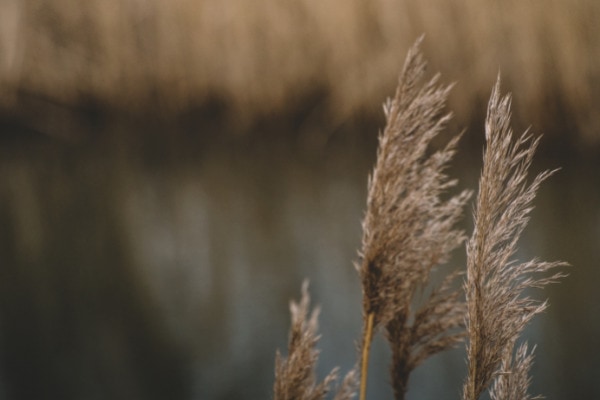
With his love for the winds and his ability to control them, Aeolus was chosen by Zeus as the Keeper of the Winds. He was allowed to cause them to rise and fall to his pleasure but on one condition – that he would keep the vehement storm winds safely locked away. He stored these in the innermost part of his isle and only released them when instructed to do so by the greatest gods.
These winds, conceived to be spirits in the shape of horses, were released when the gods saw fit to punish the world. This horse-shaped perception led to Aeolus receiving another title, “The Reiner of Horses” or, in Greek, “Hippotades”.
Legend has it that for two weeks every year, Aeolus completely stopped the wind from blowing and the waves from pounding the shores. This was to allow Alcyone, his daughter in the form of a kingfisher, time to build her nest on the beach and lay her eggs in safety. This is where the term “halcyon days” comes from.
The Aeolus in The Odyssey
The Odyssey, a two-part tale, is an account of Odysseus, the king of Ithaca, and his encounters and misfortunes on his way back to his homeland after the Trojan War. One of the most famous tales of this journey is the tale of the magical floating island of Aeolis and the wind-containing bag. This tale tells of how Odysseus was lost at sea and found himself on the Aeolian islands, where he and his men received great hospitality from Aeolus.
According to the Odyssey, Aeolia was a floating island with a wall of bronze. Its ruler, Aeolus, had twelve children – six sons and six daughters who married one another. Odysseus and his men lived among them for a month and when the time came for them to leave, he beseeched Aeolus to help him navigate the seas. Aeolus obliged and tied an ox hide bag bound with a shimmering silver fiber and filled with all types of winds to Odysseus’ ship. He then ordered the west wind to blow by itself so that it would take the men home.
This, however, is not what made the tale worth telling. The story made it into The Odyssey because of a turn of events that Odysseus termed “their own foolishness”. According to the legend, on the tenth day after setting sail from Aeolia, at a point where they were so close to the land that they could see fires on the shore, the crew members made a mistake that would cost them hugely. While Odysseus slept, the crew, certain that he was carrying riches in the ox hide bag, opened it in greed. This action led to the unleashing of the winds all at once, hurling the ship back into the deep sea and to the Aeolian Islands.
On seeing them back at his shore, Aeolus regarded their actions and misfortunes as bad luck and banished them from his island, sending them away without any help.
FAQs
Aeolus had the power of aerokinesis. This meant that as ruler of the winds, he had total authority over them. This in turn gave him the power to control the various aspects of the weather such as storms and rainfall.
Homer portrays Aeolus as a mortal but he was later described as a minor god. Mythology tells us that he was the son of a mortal monarch and an immortal nymph. This meant that, like his mother, he was immortal. However, he was not as esteemed as the Olympian gods.
This island is today known as Lipari which is just off the coast of Sicily.
The name is derived from the Greek word aiolos, meaning “quick” or “changeable”. In Aeolus’ name, this is a reference to the wind.
Aeolus means rapid, quick-movign, or nimble.
Wrapping Up
It may be a little confusing that the name Aeolus was given to three different people in Greek mythology, with their accounts overlapping so much that it’s difficult to tie occurrences to a specific Aeolus. However, what is evident is that the three of them are chronologically related and linked to the Aeolian islands and the mystery of the Keeper of the Winds.




